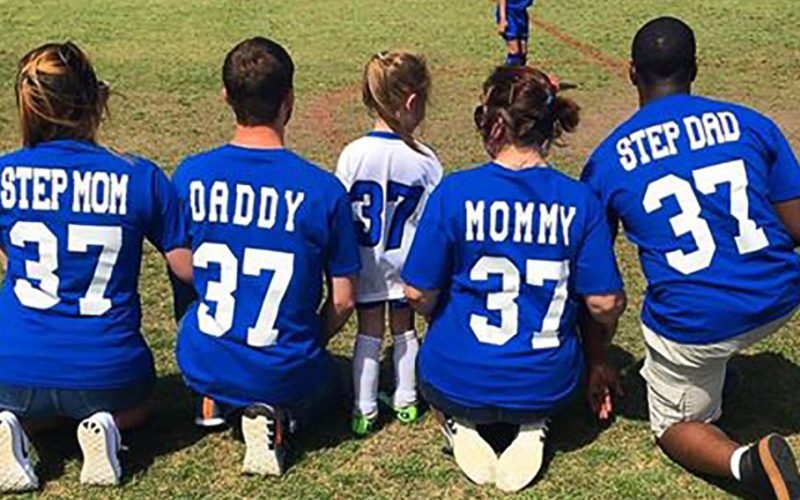It is a responsibility undertaken by both parents, who share equal duties in catering to the child’s social and moral upbringing.
However, unlike the intimate relationships practiced by adults in our modern-day society, co-parenting tends to focus more on the child.
In evolutionary biology, co-parenting is often termed bi-parental care. It’s a situation in which the mother and father of a child vary parental care.
Co-parenting was mostly related to nuclear families. But with the invention of the United Nations Convention on the Child’s Rights on the 20th November 1989, which places much emphasis on a balanced relationship by both parents towards the child even if the parents are divorced, co-parenting has gained much recognition as a right.
According to the United Nations Convention on Children’s Rights rule, the co-parenting principle advocates for the rendering of care by both parties, including the father and mother, even if separated.
The Principle of Co-parenting Perspective
The co-parenting principle was established in the early 21st century in Italy by the association of separated parents who fought against a social mindset, a legal system, a culture that is gender-based discriminatory, and a system that causes conflicts between former parents, especially when children are involved.
This association was mostly concerned about issues leading to divorce and fought for fairness in judiciary separations between men and women.
The principle of co-parenting highlights that a child has the right to foster a good relationship between his father and his mother, even if they are separated or divorced unless there’s a recognized need to separate the child from one or both parents.
Importance of Co-parenting
- It enables children to proactively live decent, better lives instead of managing lives that are not good enough for them.
- Children growing up who see the kind of respect their parents give each other exhibit these social maturity traits as they become adults.
- Children watching their parents communicate perfectly with each other instills the same social skills to the children as they grow up into adults.
- The children live and have better relationships living under the care of the two parents.
- Avoiding putting children in the middle of conflicts enables them to do better outside the home.
- Co-parenting parents are exposed to less tension, experience smoother lives, witness fewer conflicts, and have enough time to have exciting moments with their children.
- Both parents get more involved in their children’s lives when there’s co-parenting. They can make relevant inputs in their lives.
- The family is considered a place of comfort, allowing children to grow confident as they explore the world.
- Children learn organizational skills when both parents nurture them.
- Children learn to address problems amicably, a relevant skill that will serve them better as they grow into adults.
- Children learn what to do when two people think they are right in conversation, but they tend to disagree with the subject in question.
Best Ways to Carry Out Co-parenting
Co-parenting with your spouse or spouse will enable your children to have a decent and healthy relationship with you.
It also helps promote a more balanced and stable relationship between children and their parents. Children become free to reveal their aspirations to their parents.
Co-parenting is usually difficult for separated parents, but it’s always advisable for parents to set aside their differences for the sake of their children.
However, the following are some ways you can carry out co-parenting.
- Focus on your children’s needs. Their needs should be paramount to you, and you should always try to meet them and give them the desired Care. Divorced parents should regularly check on their children to provide them with the desired care.
- Set behavioral guidelines for your children’s activities, schedules, and discipline. You should make sure they follow these guidelines.
- If you are separated, communicating frequently with your ex-spouse is important to enable a cordial relationship with your children.
- You should also decide on a parenting plan with responsibilities shared amongst the two parents, especially if the two parents are divorced. In some cases, the male couple may pay the children’s school fees and pay for their immediate needs, while the female couple decides to groom the children until they can cater for themselves.
- Learn to settle issues outside the presence of your children. Solving issues in the presence of your children is considered unhealthy.
- Amicable interactions at school and extracurricular activities.
- Ability to be flexible enough, especially when something comes up.
- Respect and acknowledge that each parent has a relationship with the children. This applies to divorced parents.
Reasons Why Co-parenting Doesn’t Work Effectively
- An active issue with alcohol, drugs, or other substances: this comes into play when a particular parent suffers from substance abuse. This will make such a parent erratic and, in most cases, forget to play his part in providing and caring for the children.
- At least one parent is trying to gain control over the other: When there are power struggles between the two parents, the children become victims of many circumstances, and adequate care is rarely given. A situation where a particular parent tries to seek control over the other will result in a lack of respect for the co-parent, which will terminate the working relationship between the two parents.
- The parents are incapable of collaboration. Without initial collaboration during the marriage, it would be difficult for the parents to collaborate after marriage. This is because co-parenting requires adequate collaboration between the two parents.
- One parent is emotionally abusive of the other parent: The ultimate sign of disrespect is abuse, and where abuse is prevalent, then co-parenting will be difficult.
- One parent abandons or neglects the children: Co-parenting will be extremely difficult if a parent is unwilling to parent.








